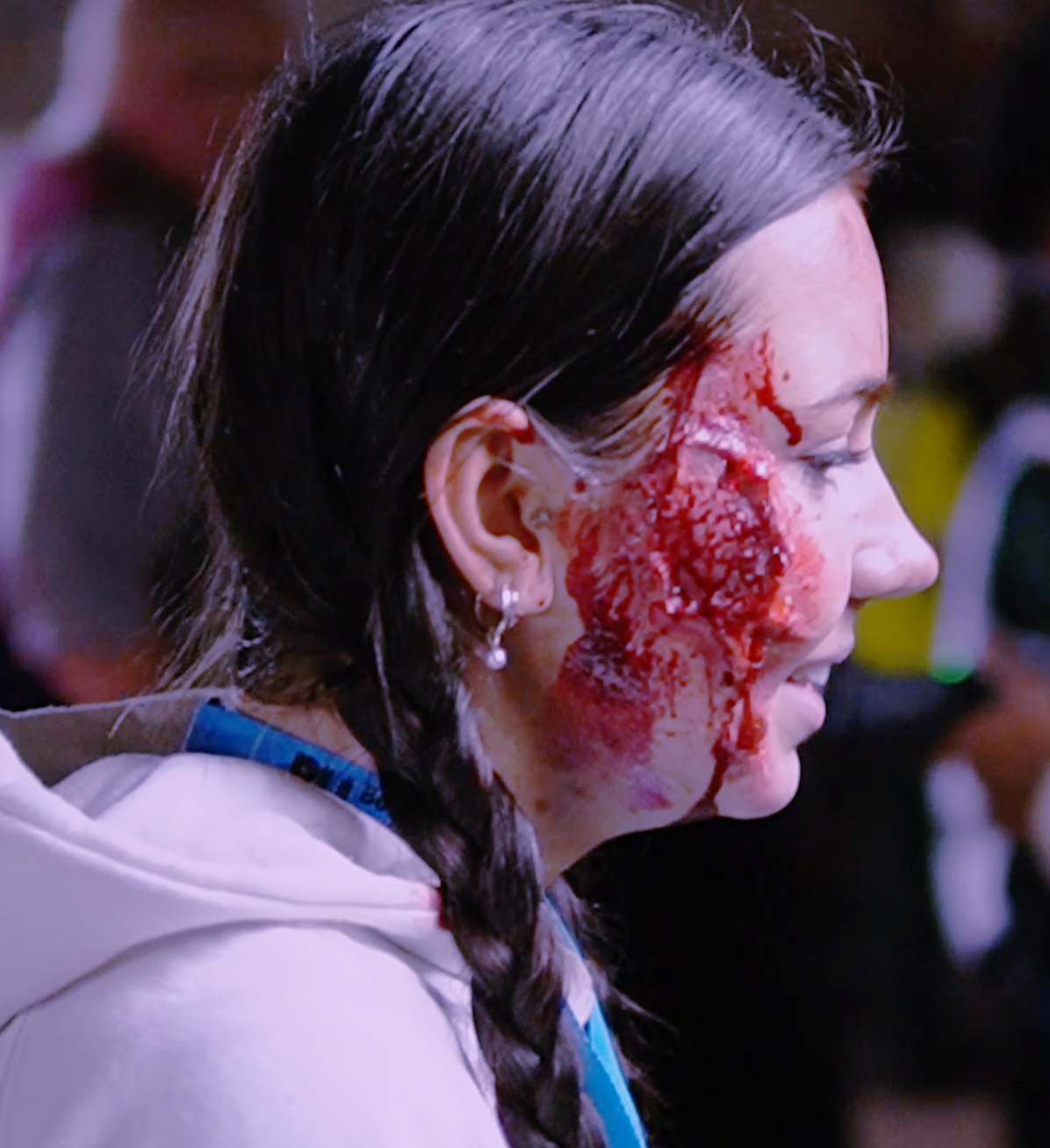Unreal
By
Gokul Aanandh Bhoopathy
with
Syed Naqi Akhter, Thanh Hung Nguyen and Nichola Hunter-Warburton
Guts. Fake blood. Artificial limbs. On a cold March morning, the Old Fire Station in Bournemouth was abuzz with activity, poised to become the epicentre of a ‘chilling’ spectacle. The venue, a live music event and watering hole for students on any normal day, was quickly transforming into a stage for the extraordinary.
Outside, in the adjacent above-ground carpark, scores of people — paramedics, emergency responders and student medics — milled around.
Below, in the depths of Studland House car park, the scene was being set for orchestrated pandemonium to unfold. Scores of ‘victims,’ their bodies adorned with grotesque wounds, lay scattered on the cold concrete — apparent casualties of a zombie apocalypse.
The orchestrated terror of a zombie attack was meticulously planned by academics at Bournemouth University. Part of a two-day training event involving more than 300 medical students and health professionals, the simulation was conceived to thrust paramedic and nursing students into a chaotic, high-stake scenario — a ‘major incident’. In medical parlance, a ‘major incident’ refers to events that cause large-scale destruction, involving multiple casualties. For instance, a major fire, a severe flood, a public health crisis — or, as it was happening today, a zombie attack.
At around 10:00 am, 30 paramedic trainees, wearing high-visibility vests and green helmets, began to line up at the shuttered entrance to the car park. A little earlier they had been briefed by the ‘incident commander’, who had left out one tiny detail: that they would be treating victims of a zombie attack.
The entrance opened. The responders walked down the ramp in small groups, their faces tinged with trepidation and excitement, seasoned paramedics by their side. They walked past a BBC cameraman, past three women filming them on mobile phones, towards a white car with flashing lights, beyond which lay the ‘victims’.
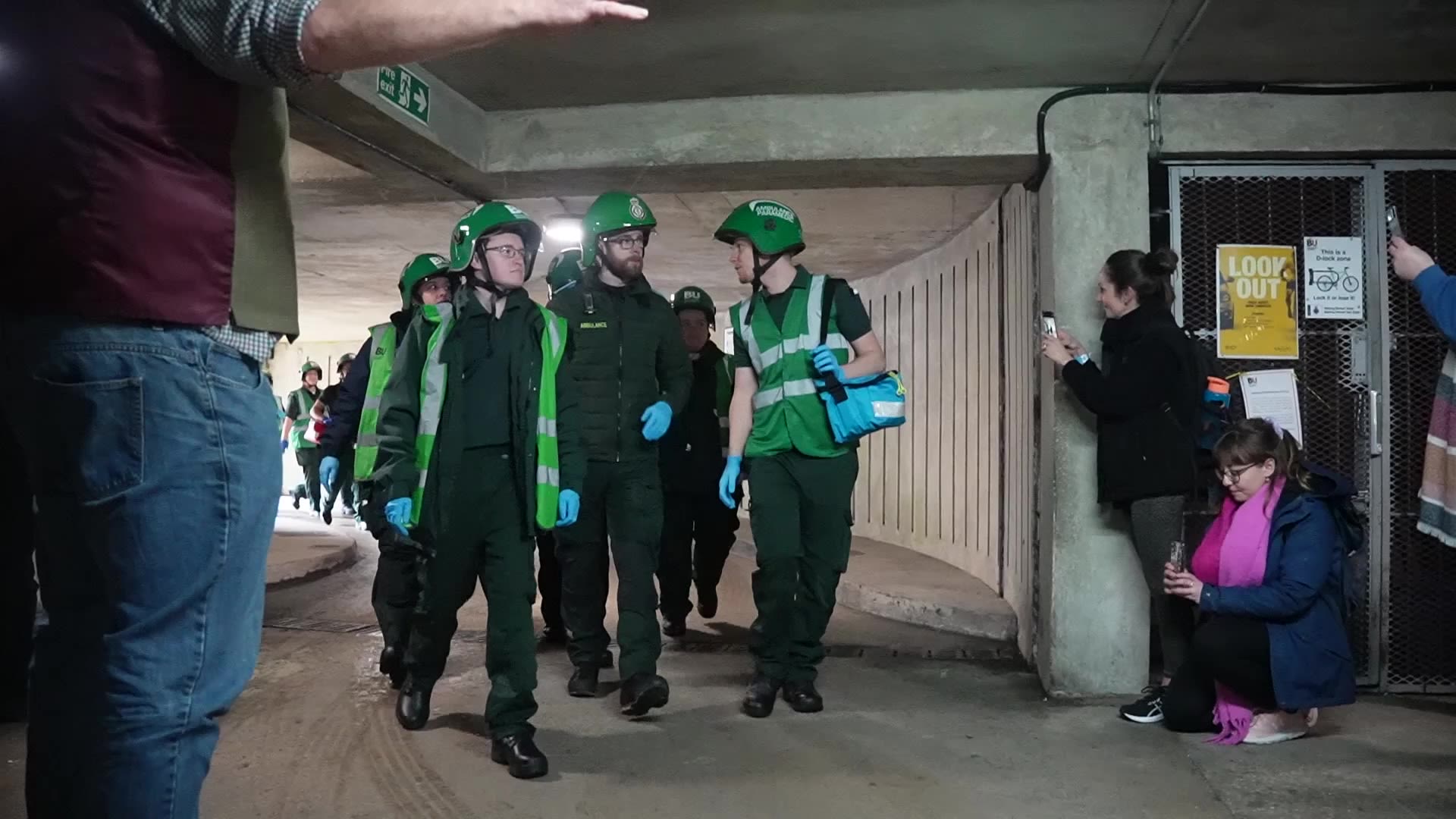
The chaos the participants encountered was designed to provide them a feel of a ‘real-life’ mass casualty event. The scenario's progression depended on the students' actions. Situations could improve, worsen, or result in simulated fatalities. The exercise required quick thinking, and the ability to respond to a multitude of problems simultaneously.
But why a zombie attack? Why not something more ‘real-world’?
“It’s a bit of fun,” said Adam Bancroft, the incident commander and programme leader for BSc Paramedic Science. “It’s not about focussing on the why, it’s focussing on the actual doing.
"It’s more to do with challenges with working in an austere environment. It changes the way you have to prioritise your treatment, how you treat patients.”
The preparation for the grand-scale apocalypse simulation had taken several months. To enhance the realism of the apocalypse, organisers had enlisted the help of Arts University Bournemouth (AUB), whose students had worked on actors to transform them into zombie victims.
AUB student Verona McDonald, who served as the head makeup artist for the event, said she had spent the last two months designing, sculpting, moulding and painting prosthetic pieces.
"We are normally trained for theatre and film," she said. "Simulation is quite different. You have to make sure everything is sturdy... everything has to be anatomically correct, 100 per cent, because it is being used by medical professionals."
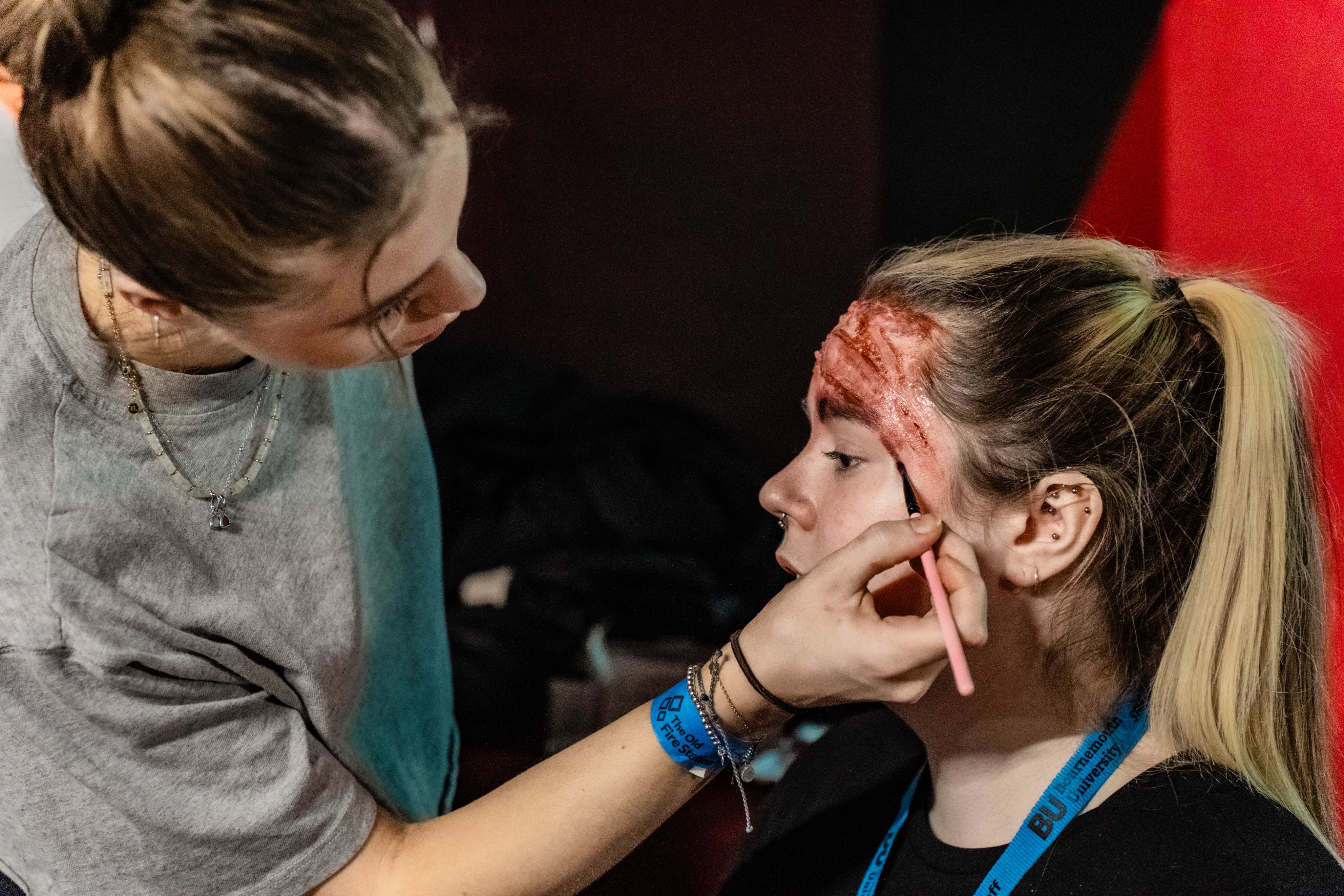
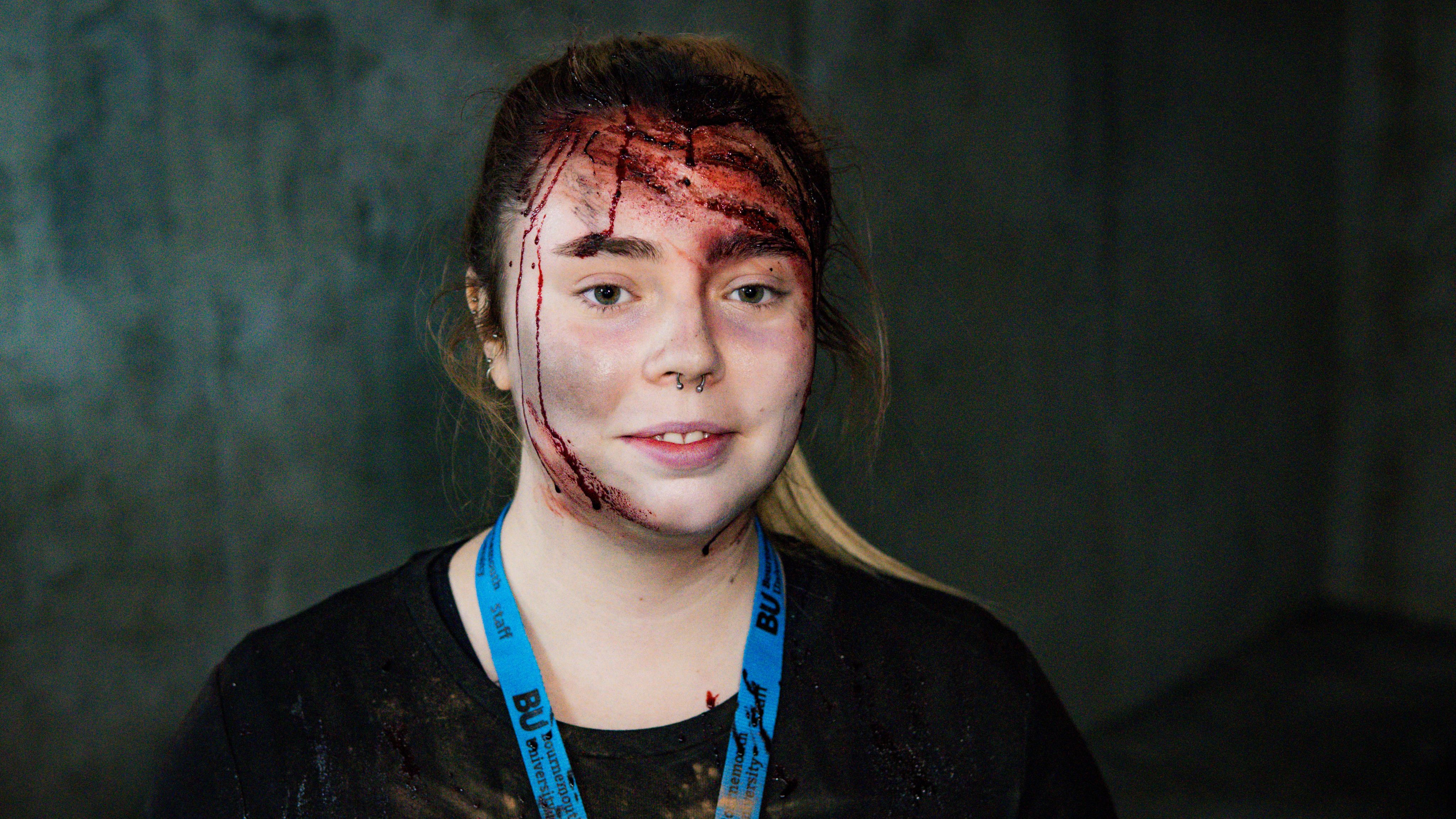
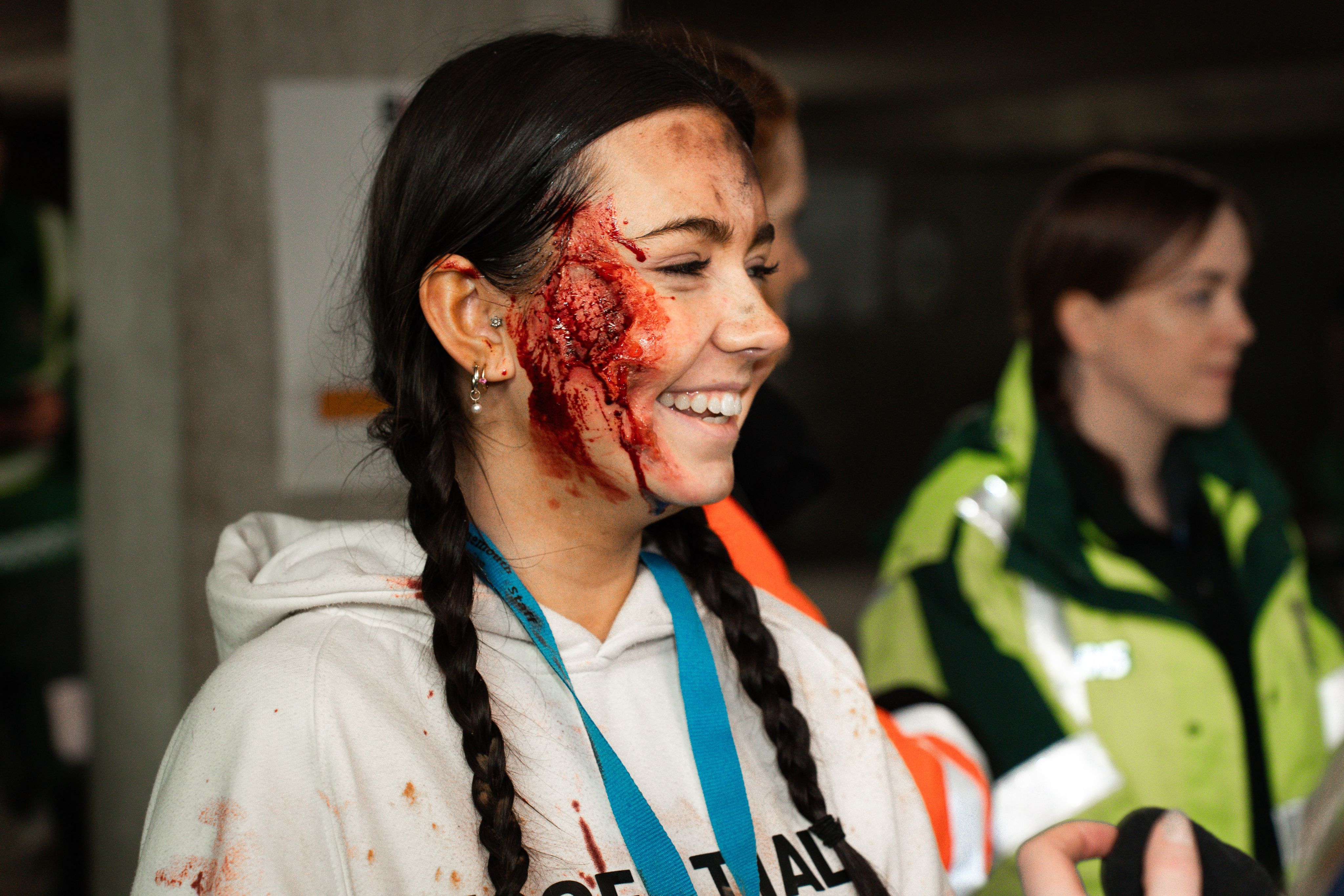
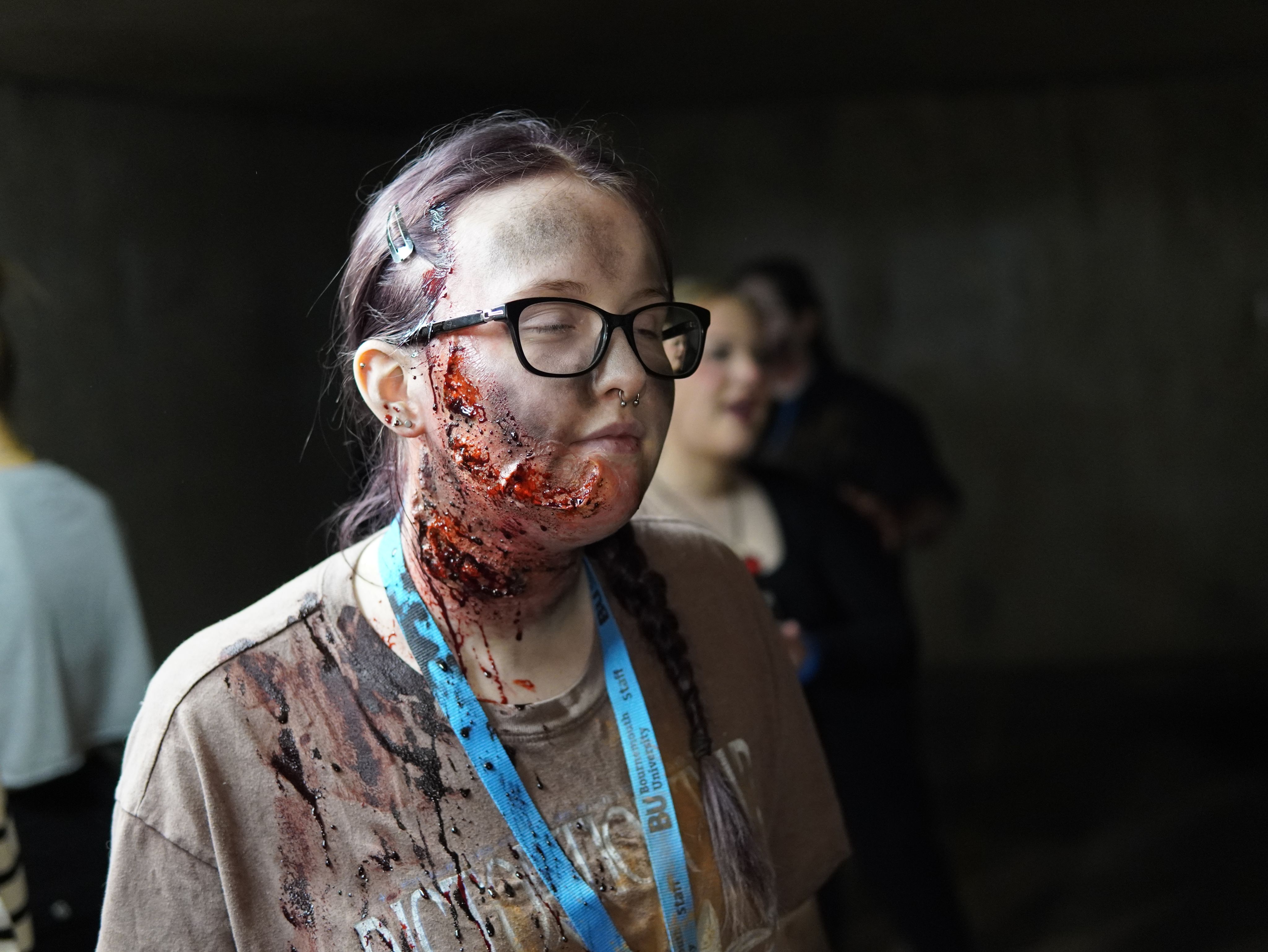
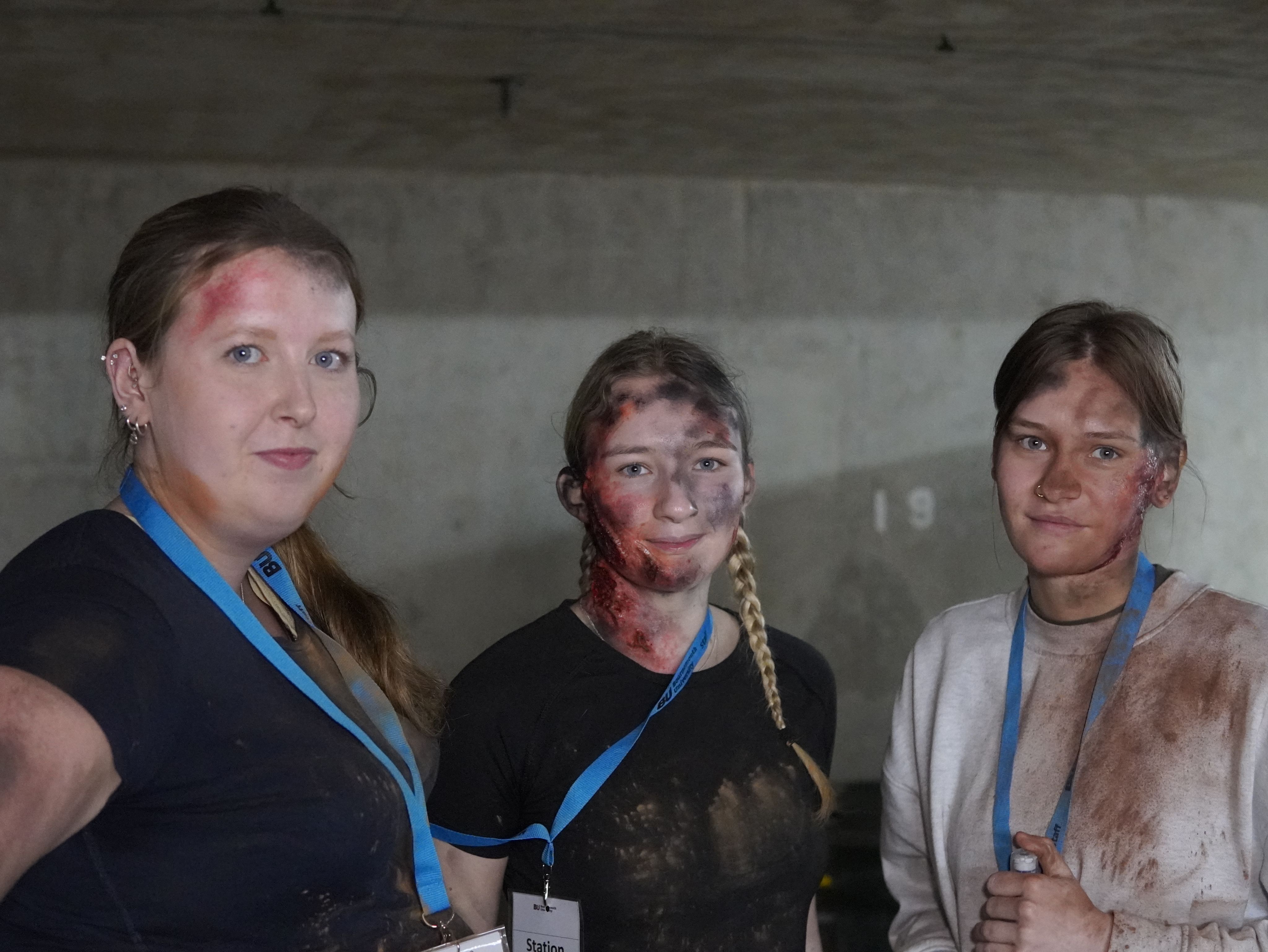
For the actors playing zombie victims, the day began very early, much before the responders turned up, in a large room on the upper floor of Old Fire Station, sitting still while McDonald's team worked their magic.
Once made up in specific roles ('burn victim with leg injury'), the actors proceeded to the underground car park, where they had been assigned stations to enact their trauma.
It is not just the special effects artistry that made the exercise seem ‘real’. The controlled chaos simulated in the carpark, according to organisers, is based on situations that responders often face.
Every day across the UK, incidents ranging from isolated casualties to events involving multiple victims occur. The importance of these emergency responders cannot be overstated, and their demand continues to grow. According to national statistics, from 2021 to 2022, ambulances responded to an astounding 8.9 million incidents. This equates to more than 24,000 daily incidents. Major incidents are also on the rise, though admittedly, zombie attacks are rather rare.
“This event is really important for their training,” said Mary-Ann Robertson of Bournemouth University, who helped put together the event. “They are faced with a disaster mess when they enter the underground car park— and they have to treat the patients on the ground.”
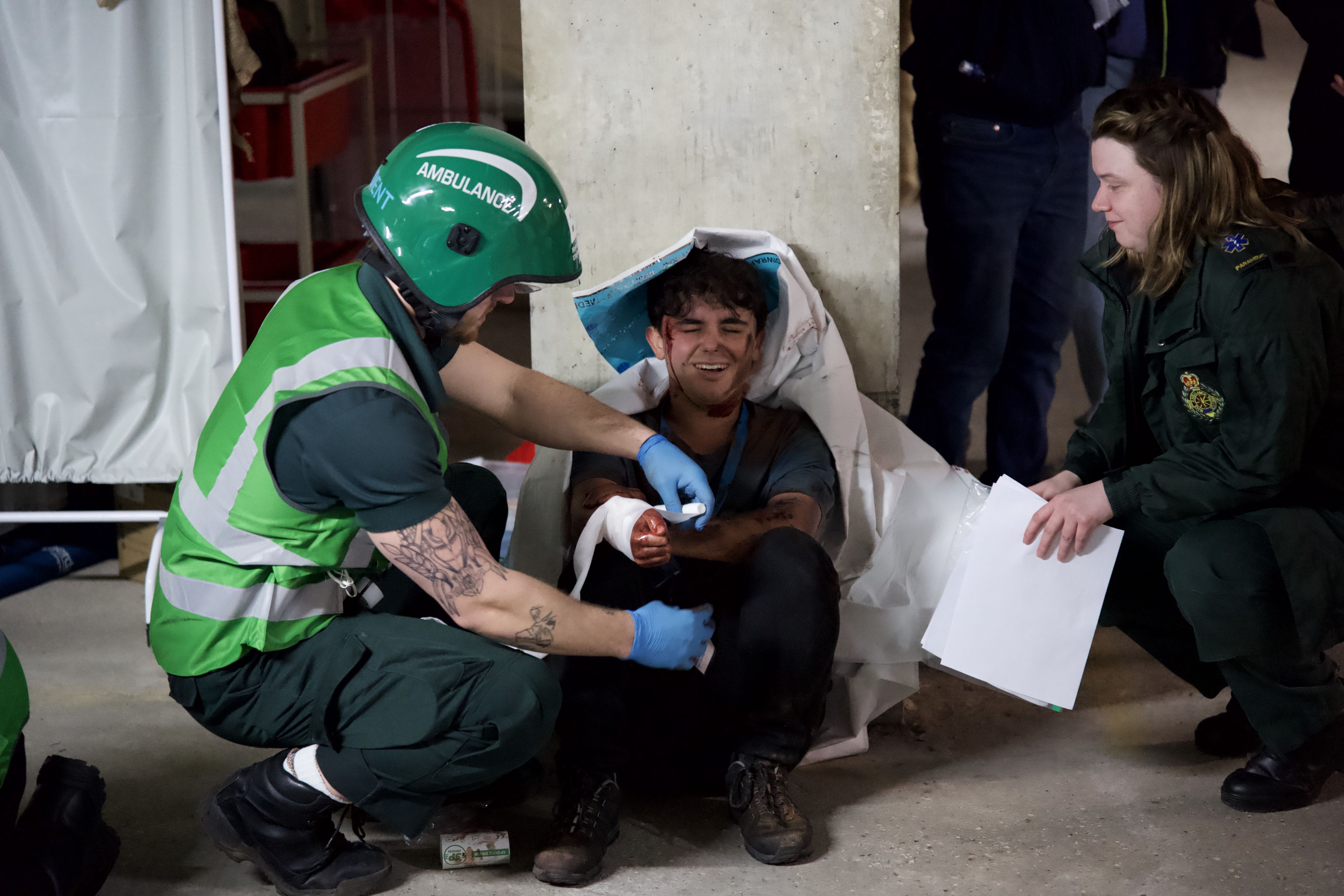
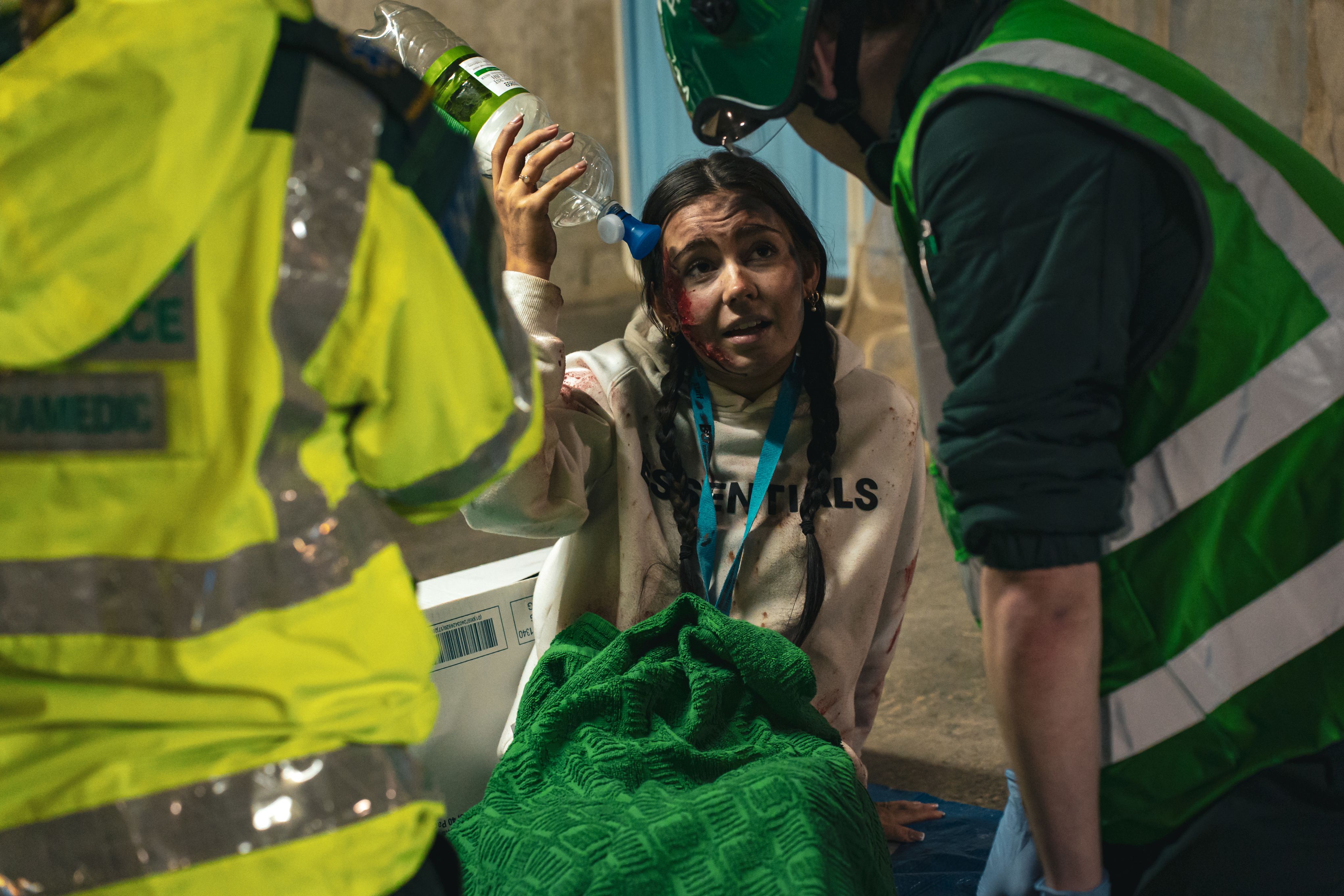
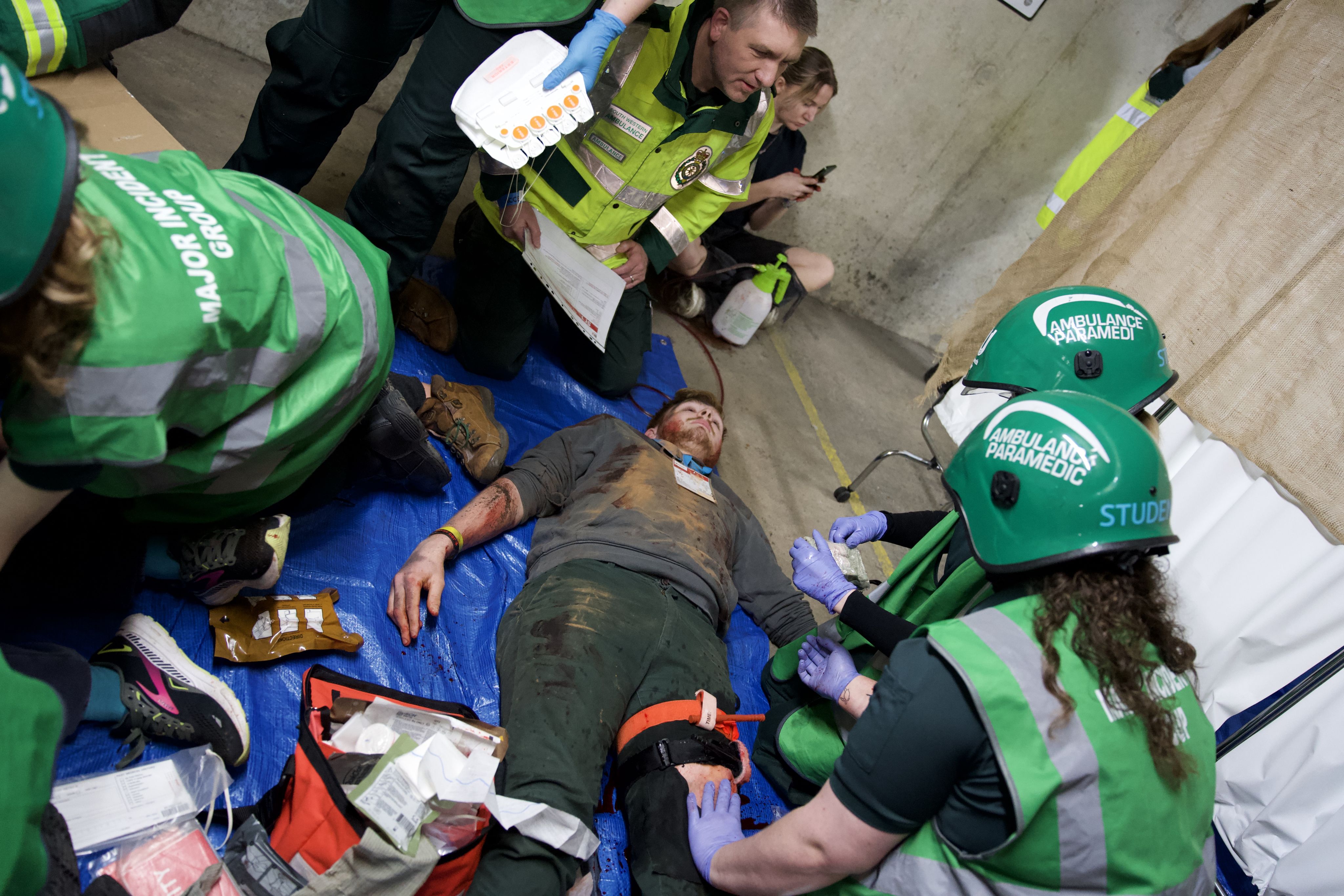
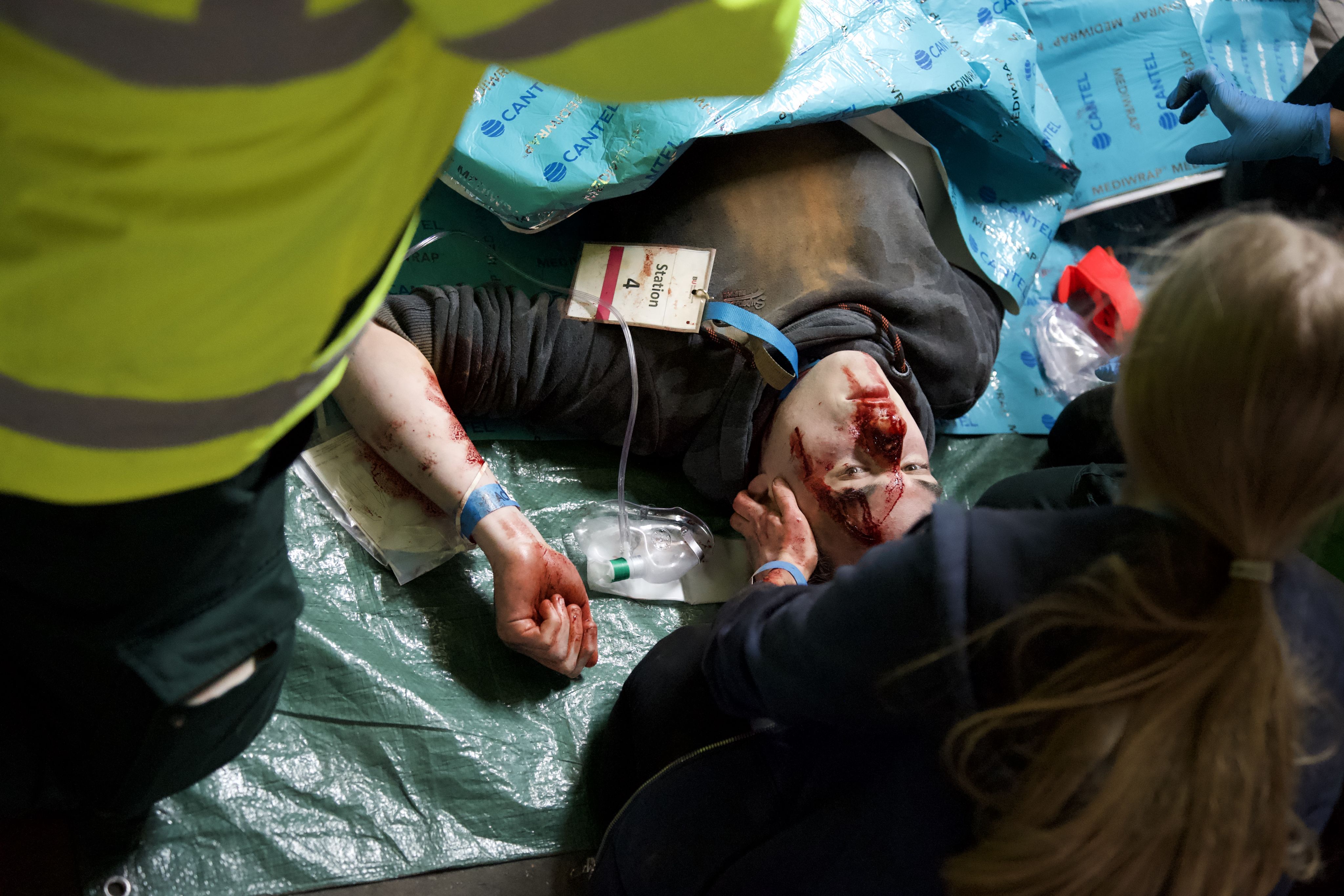
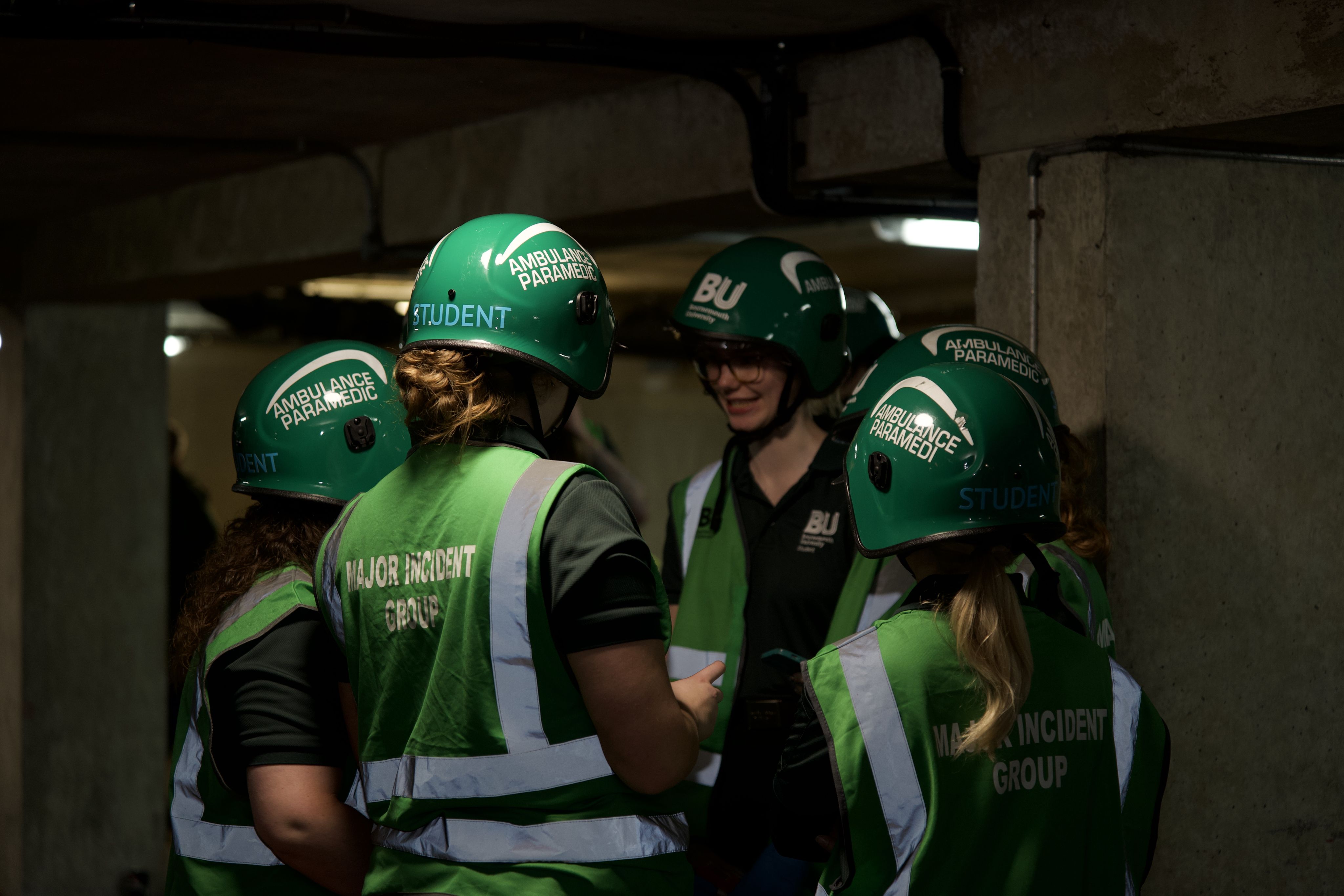
The 'patients on the ground' and the situations the participants found them in when they entered the car park had been carefully scripted.
Simulation lead Una Brosnan said she worked hard to create an experience that would provide students scenarios that they would face in their careers.
The idea was to give them an opportunity to feel the chaos of a major incident, with adequate supervision, and allow them to learn.
Breaker journalist Nichola Hunter-Warburton was at hand as the participants emerged from their emergency stations. How did they find the experience?
“It is really good to get this opportunity, to see a lot of trauma around,” said Beth Greaves, a paramedic student. “In the first year, you are learning to practice. And in the second year, you are remembering in a passive way — oh, yeah, I remember you got to do that. And it is useful for third years, that final reminder of how to do things in a pressure environment.”
Tom Kirpatrick, too, found the exercise useful and exciting. “It helps us get prepared for what would see on the road,” said the paramedic student, “the kind of situation that nobody ever wants to be in.”
The exercise saw the involvement of health professionals from the South West Ambulance Service, South Central Ambulance Service, South East Coast Ambulance Service, Wiltshire Ambulance Service, and Dorset & Somerset Air Ambulance Service. The professionals, all volunteers, guided the students as they attended to the victims. How do they feel about the exercise?
Neil Bizzel, specialist practitioner with the Dorset & Somerset Air Ambulance, was one of the professionals on the scene, to support aspirant responders.
“This gets us to meet each other, in a setting where we have time to chat about things, debrief, and learn together,” he said. “So we share our experiences. But also, the students have their own experience and knowledge that they want to share with us.”
The event also fostered unity among educational institutions and the health industry, bringing people together for a common objective, noted Colin Weston JP, High Sheriff of Dorset, who attended the exercise. “It’s as real as it gets,” he said. “So enjoy it and learn from it.”
Caitlin Higginson-Cole, a paramedic student who played a burn victim with a leg injury on the first day, appeared to be doing just that.
"You can’t get something like this in the classroom,” she said. “You have to think on your feet.”
About this story
Unreal is part of a themed coverage on health and well-being (SDG3) undertaken by Breaker journalists in March 2024, with Gokul Aanandh Bhoopathy and Jennifer Chibobasi as editors.
Filming and reporting by Gokul Aanandh Bhoopathy and Syed Naqi Akhter. Additional reporting by Nichola Hunter-Warburton. Photography by Gokul. Text by Gokul, Thanh Hung Nguyen and Nichola. Audio editing by Thanh Hung Nguyen.
Editorial mentors: Chindu Sreedharan & Wayne Ferguson
Related stories
Training with the zombies (podcast)
Straight from a Hollywood movie, zombies visit Bournemouth
